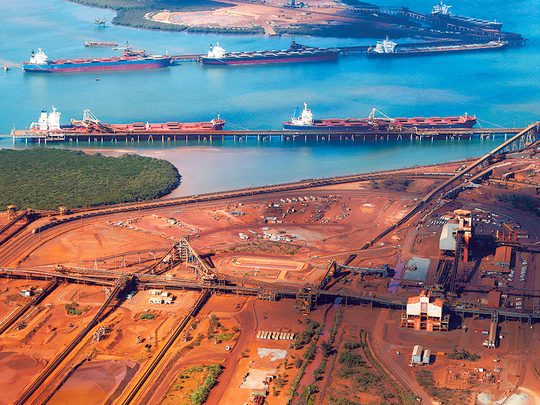
Sydney: The Australian state of New South Wales has proposed changing its mining approval process to give greater consideration to environmental concerns, potentially threatening a colliery expansion planned by mining giant Rio Tinto Ltd.
New South Wales Planning Minister Rob Stokes said in a statement on Tuesday that he wanted to alter the mining approval policy in the country’s biggest state to reflect “careful deliberation of environmental, economic and social issues”, shifting away from prioritising the extraction of resources.
The proposed change could affect Rio’s planned expansion of its Mount Thorley Warkworth coal mine about 120 miles north of Sydney, which is awaiting final clearance after an approval process that has taken several years.
Rio Tinto Coal Australia managing director Chris Salisbury said the miner had already made extensive changes to its plans to accommodate community concerns.
“Regardless of these (proposed rule) changes, we believe there is a clear and compelling case to allow mining to continue at Mount Thorley Warkworth,” Salisbury said in a statement, adding that the extension would add A$1.5 billion ($1.1 billion) to the state economy via wages, royalties and taxes.
The NSW Minerals Council said in a statement that the government had chosen “what it believes is the easy political option rather than the sound policy option”.
Alan Leslie, spokesperson for the Bulga Milbrodale Progress Association, a resident group that has opposed the mine expansion, said he hoped the proposed changes would enable the state to “reject Rio Tinto’s latest tilt at getting its project through”.
New South Wales is already typically viewed as the toughest state to get mining approvals, as it outsources the process to an independent commission.
The country’s No. 2 energy retailer AGL Energy Ltd/son Monday said it was pulling out of three coal-seam gas projects in the state due to environmental hurdles.
Rio Tinto shares were up 1.1 per cent on Tuesday, while the broader market rose 1.5 per cent.












